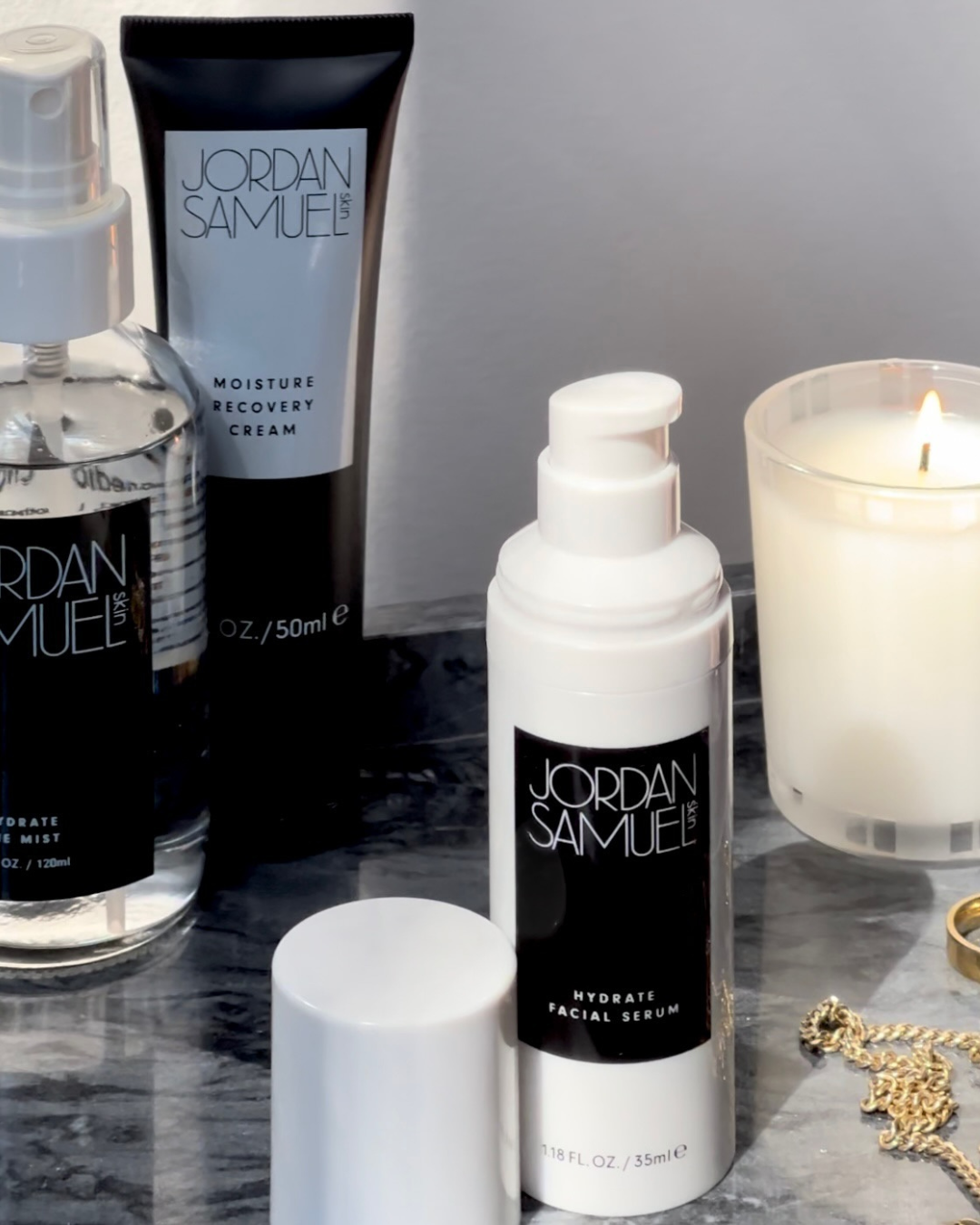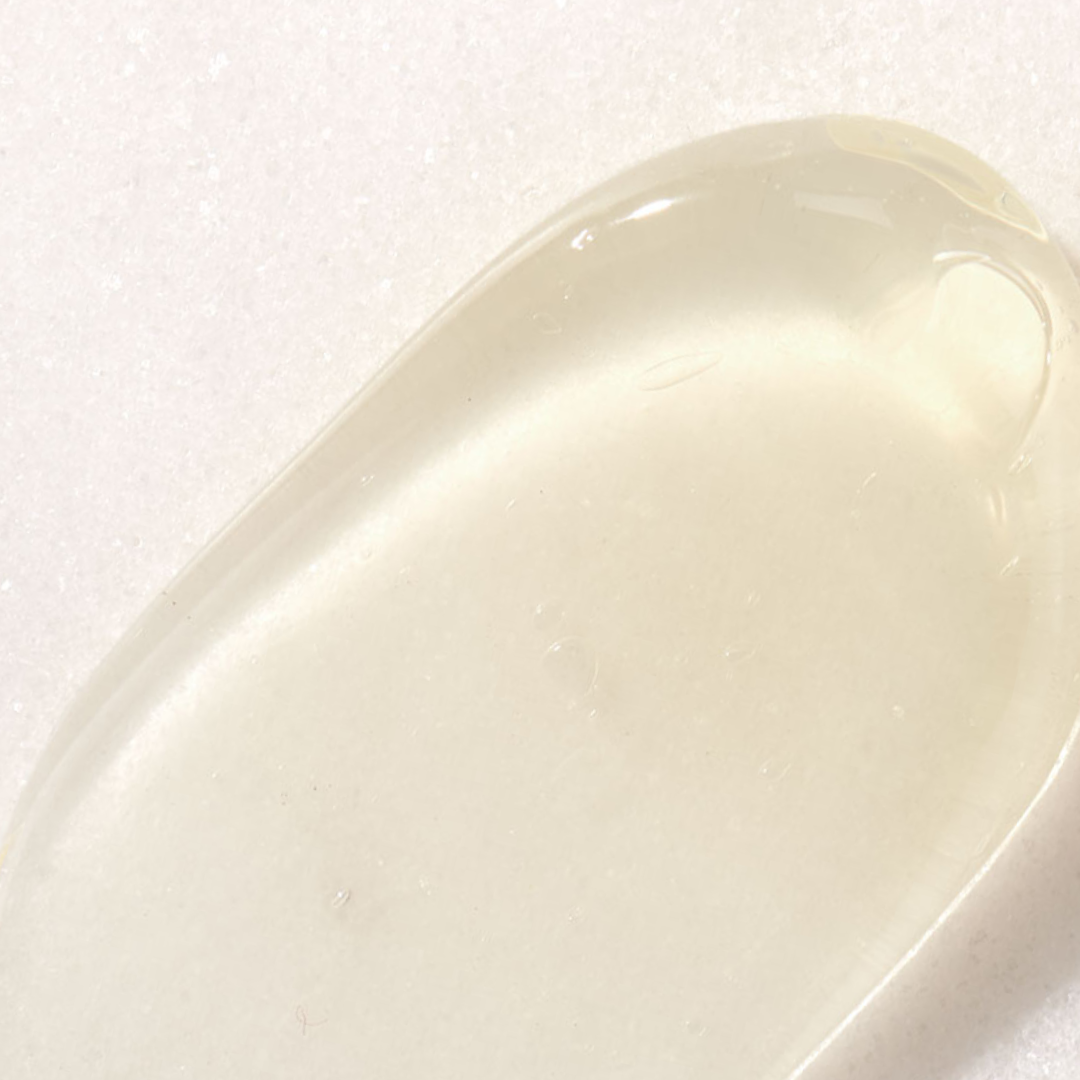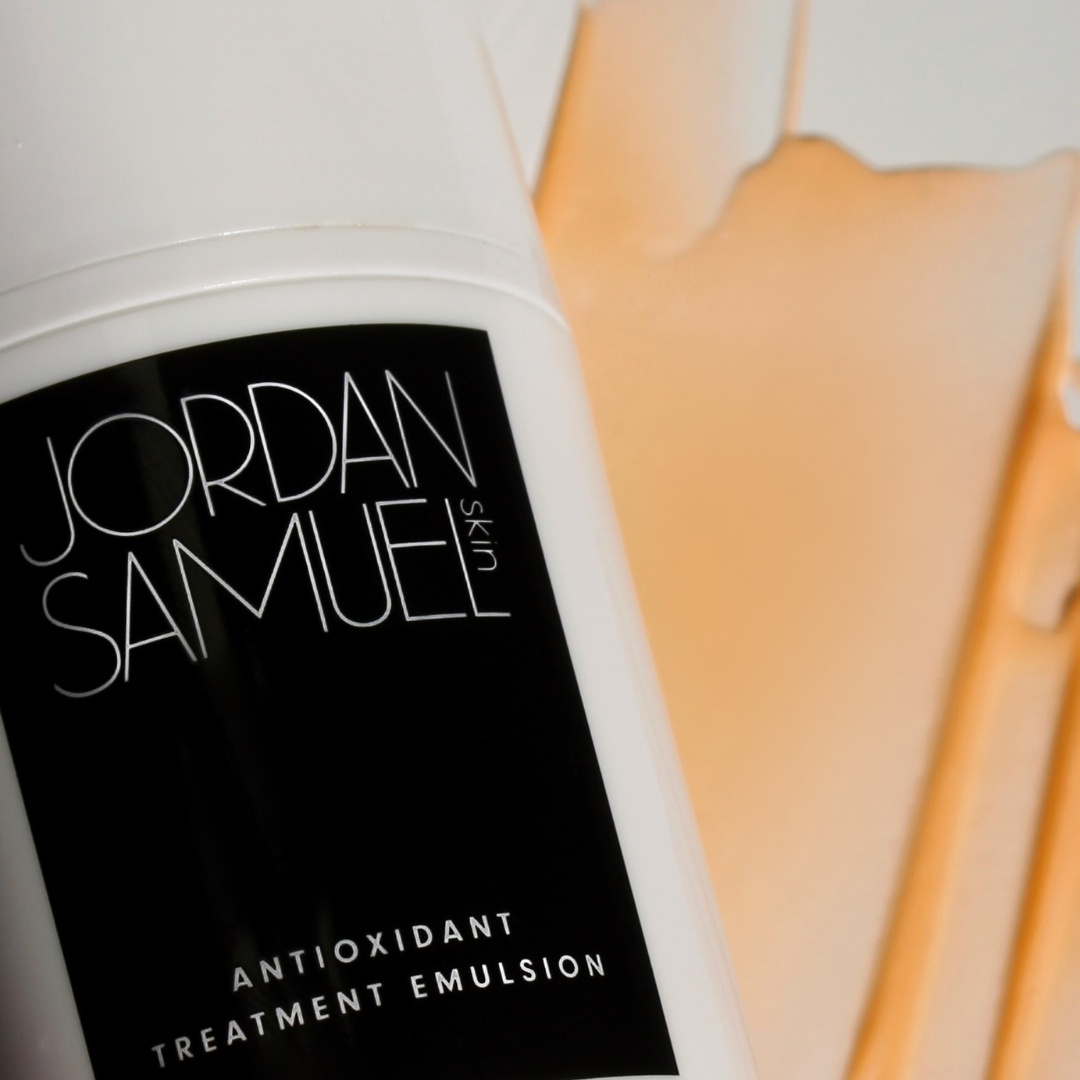If you've been following Jordan Samuel Skin for any length of time, you probably know that consistent use of gentle products forms the cornerstone of my skincare philosophy—coaxing the skin into its most brilliant self by focusing on long-term benefits. Slow and steady wins the race, right? At the same time, as skincare stans, the temptation to succumb to the glass-skinned promises of high-percentage actives is REAL. Unfortunately, as someone with sensitive/easily sensitized skin myself, I know firsthand the frustration that occurs when such promises prove elusive, and actually end up delivering a damaged and irritated skin barrier. What to do when sensitivities are exacerbated due to a compromised barrier? Cue: ceramides. Keep reading to learn why ceramides might be the glue that holds your skin routine together…
What are ceramides?
Ceramides are lipids that occur naturally in our bodies. They comprise 50% of the lipid structure of the semi-permeable stratum corneum, our skin's outermost layer, also known as the skin barrier. A commonly used analogy to illustrate the structure of the stratum corneum likens our skin barrier to a brick wall, where the skin cells are the bricks and the lipid structure (a 2:1:1 ratio of ceramides to fatty acids to cholesterol) is the mortar. As the dominant component binding our skin cells together, ceramides play a vital role in supporting the skin barrier's two functions—holding water in while simultaneously keeping environmental pollutants and irritants out. There are 9 different types of ceramides, differing based on the length of their carbon chains; however, in terms of skincare, these differences are minor, and they generally serve very similar functions. Additionally, though the ceramides used in skincare are most often synthetic, they are bio-identical, meaning they are structurally identical to those that naturally occur in our bodies.
Why incorporate ceramides into your skincare routine?
Two Reasons:
- Starting in our 30's, and accelerating in our 40's, our bodies experience a substantial decrease in their natural production of ceramides. As a result, it can be beneficial to replenish our skin's ceramide stores with our skincare products to strengthen our skin barrier, thus minimizing transepidermal water loss and helping to treat dryness and irritation to restore skin's dewiness and bouncy resilience.
- Overuse of skincare actives, like acids and retinols, can damage the skin barrier, leading to dryness, redness and irritation, as the compromised barrier causes an increase in both transepidermal water loss and the amount of environmental contaminants penetrating the stratum corneum. Topically applied ceramides can be useful in helping to repair the barrier by reinforcing the protective lipid structure between skin cells.
Benefits of ceramides in skincare:
- They help to facilitate hydrated, healthy looking skin while minimizing dryness, flakiness, irritation and the visibility of fine lines and wrinkles by minimizing transepidermal water loss.
- They help to minimize irritation in the form of redness, itchiness and breakouts by restoring the skin barrier's function of keeping out harmful pollutants and bacteria.
- They help skin to better tolerate active skincare ingredients, like acids and retinols.
Fun fact: Ceramide NG, the skin-identical ceramide in our Moisture Recovery Cream, has been shown in studies to reduce transepidermal water loss in normal young skin and reduce both transepidermal water loss and irritation in the skin of postmenopausal women when used in a 0.5% concentration. We chose to use one ceramide our Moisture Recovery Cream, Ceramide NG, at the studied 0.5% concentration, to focus our formula and maximize the benefits of the included ceramide rather than use lesser percentages of several different ceramides.
Who can use ceramides in their skincare?
The good news: Ceramides are suitable for all skin types! Additionally, they play well with others—they are safe to use with most every other skincare ingredient, working particularly well alongside glycerin, cholesterols, and amino acids. So, no need to worry about contraindications from mixing them with other ingredients in your routine.
Disclaimer: While understanding the benefits of and science behind individual skincare ingredients is important in informing our purchasing decisions, it is only one piece of the puzzle. For example, even though ceramides are suitable for all skin types, one must be mindful of the overall formulation of the product in which they are housed—formula is king! We should always build our skincare routine by choosing well-formulated products, treating according to our skin concerns/goals rather than through ingredient FOMO. That being said, ceramides are an ingredient you may want to have on your radar if you are dealing with dry and/or irritated skin!
Xo,
Jordan
If you would like to read more content like this, delivered directly to your inbox, sign up for our email newsletter by clicking here.
- New email subscribers receive will receive 15% off their next order on www.jordansamuelskin.com!





